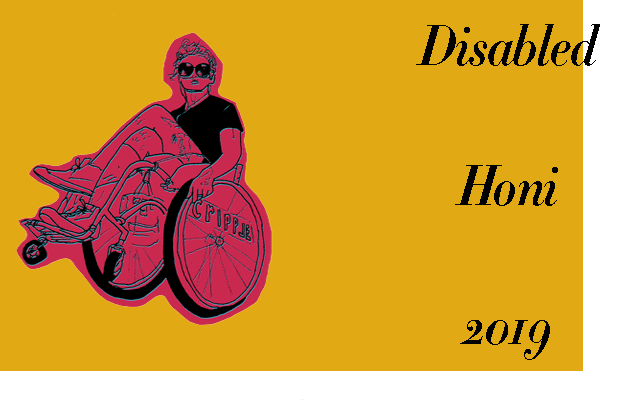Being deaf, gay, and Asian—as if some heady intersectional cocktail—I don’t hesitate long in saying that whereas being gay and being Asian occurs to me only in bursts, being deaf has been a daily, extremely annoying constant.
If you were to draw up a pie chart of how much these three identities have variously impacted my life (for good or ill), it would have the biggest slice. Not to say, however, that homophobia and racism, often appearing hand-in-hand, haven’t also popped up in my life. Or rather, popped out in the sense of ghosting since such prejudices have almost become passé, though they’ve certainly not passed.
But it’s the ableism—and audism more specifically, a handy term coined in the mid-seventies to describe the discrimination against people based on hearing ability (or lack thereof in my case)—that gets most of my attention. This is because of how widespread such audism still is, how almost inherent it remains in much of society from infrastructure to behaviour.
Around the corner, Deaf Awareness Week is the last week of September. It would be a mistake to take my viewpoint as representative of what being deaf is like, there being no such singular experience—there is being Deaf, for example, which means being involved in the Deaf community (hence the uppercase-D), and also usually knowing their (sign) language. Unfortunately, I am in that even more specific sub-minority category of being deaf, but not knowing Australian Sign Language (or Auslan, which SignSoc here is organising classes for!) except some expletives. So, my singular deaf experience is only one of many, but hopefully nonetheless illuminating.
What’s my deafness like? It’s not liking these, as follows:
People who mumble. Over-enunciation. Or under-enunciation. Whatever happened to moderation? Poor sound systems at airports and train stations. Rain. Fast banter. The top parts of overhead projectors or computer monitors that lecturers and tutors sit behind, blocking their lips I can’t read. Other likewise inconvenient objects at lip height. Dimly-lit places. Loud places. Full beards. Classroom tables arranged in grids. Certain accents. Certain consonant clusters. Face-masked people (I almost prefer contracting the cold or flu to not understanding what you said). Face-masked and bearded people in dimly-lit and loud places, standing behind tall things.
Despite my bilateral cochlear implants—they not being the longed-for cure-all like many, especially some hearing parents of deaf children, would like for them to be—I still lip-read. Anything to reduce lip-readability, and we’re both going to have a bad time.
What else is deafness like?
It’s laughing heartily at what someone said, but it was a question. It’s excitedly turning on captions for a YouTube video, only to be disappointed that they’re auto-generated (accuracy’s usually more misses than hits, and not much better than Revenge of the Sith’s Chinese bootleg subtitles: “The geography that I stands compares you superior”). It’s tilting your head at just the uncomfortably optimal angle in some lecture rooms, the better to catch the hearing-loop signal, and having neck problems afterwards.
Class discussions are usually their special kind of frustration. The smaller ones pose no real trouble for me. It’s typically the larger ones of more than 10 or 12 that, despite tables generously (and painstakingly because it’s seldom the default) moved into a horseshoe layout, I nevertheless struggle in following that larger conversation, and still more in participating in them. Imagine a tennis match with that dozen of players, playing with that many balls—maybe an impossibility, but you pull it off effortlessly.
Deafness is usually missing the full picture of any such discussion or, after finally composing it, everyone’s already moved onto talking about the next one (i.e., picture), and so on—a recursive state of belated understanding. This brings me to probably my biggest annoyance:
On occasions where I do ask for clarification, I regularly get the following responses: “Never mind,” “Don’t worry about it,” “It doesn’t matter,” and “It’s not important,” all of which usually said in this pseudo-apologetic, faintly impatient way that’s hard to miss. Seeming self-deprecation (on their part) that ultimately comes off as self-negating (on mine).
Granted, it could really be trivial, and maybe knowing you made some low-effort, vaguely insulting pun (“hear here!”) would’ve been doubly embarrassing or self-incriminating for all involved if clarified. But it’s the act of knowing itself, and not knowing about anything in particular, that does matter, is important.
You don’t need to have read Macbeth to have picked up on that line about the “sound and fury” of life, “signifying nothing.” For me, though, it’s somehow both loud and quiet, signifying nothing and everything. The best thing about being deaf, then, is getting that clarification, willingly if not unasked. It’s being recognised that I mind. It’s being included in that collective knowing—of both nothing and everything.





